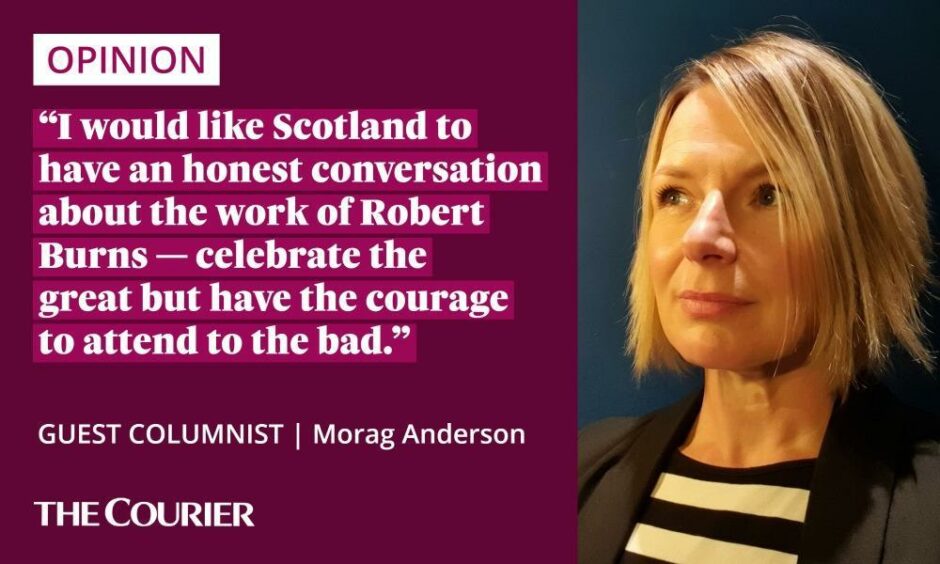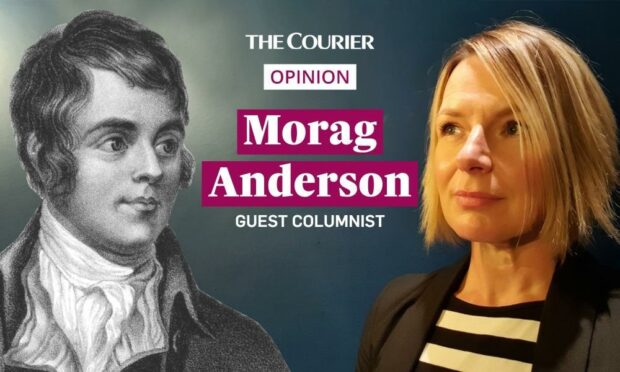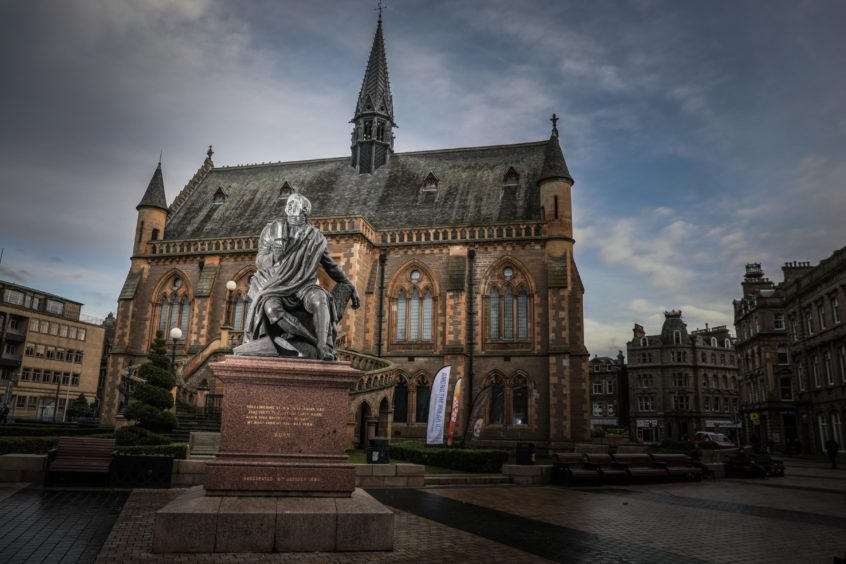When I was commissioned by the Scottish Poetry Library to write a response to Robert Burns for Burns Day 2022, the biggest surprise was being given free rein – no guidelines, no limitations, no editing.
The freedom encouraged me to reach beyond the tartan and shortbread version of Burns and scour the unswept corners.
Burns’ poetry is lyrical and lusty, bold and bawdy.
His ability to celebrate nature and the working man, ridicule the constraints of religion and uphold the sinner, is unrivalled.

The son of hard-working tenant farmers, often on the brink of penury, Robert’s formal education was limited.
Yet few, surely, could fail to love so much of what he wrote – most of it in Scots.
However, with the time to take a closer look at the man as well as the poetry, what I found hiding in plain view was a side to Burns I did not like.
Attitudes from Burns’ time can’t be celebrated today
Yes, he claimed to love the ladies, yet managed to treat so many so badly.
Yes, he was promiscuous and fathered 12 children to four mothers.
But my dislike does not lie there. For which of us is without stain?
My problem lies with the Merry Muses of Caledonia—songs said to have been collected or written by Burns and published posthumously.
I can suffer that this collection may reflect 18th century attitudes and behaviours.
But I cannot accept the continued celebration of such work in 21st century Scotland.
Repeatedly described as bawdy, the overarching theme of this collection is flagrant sexual abuse and misogyny.
Adding a catchy tune to Muirland Meg does not disguise that she’s a prostituted 13-year-old but does, it seems, make it suitable for a BBC recording…
Giving voice to Robert Burns’ women
In fulfilling the commission, I chose to write in the voices of three women who featured in Robert Burns’ life as well as his poetry: Agnes Wilson, Mary Campbell, and Jean Armour.
My first poem, The Unheard Testimony of Agnes Wilson, is a response to Burns’ Adam Armour’s Prayer.
With a group of friends, Adam stanged Agnes—a servant in Poosie Nancie’s tavern—by tying her to horses and letting them run loose through the town.
Brutal, whichever way you squint at it.
My second poem, The Full Tenderness of Parting, is a response to Burns’ Highland Mary.
The Full Tenderness of Parting – Morag Anderson (@morag_caimbeul)
This impactful piece responds to Burns & Highland Mary
Watch her other commissions, and those of 3 other great poets https://t.co/irAXSfTpAL pic.twitter.com/8LRSR8dweU
— Scottish Poetry Library (@ByLeavesWeLive) January 23, 2022
Mary Campbell, bethrothed to Burns, was to sail to Jamaica with him in 1786.
She waited in Greenock.
He didn’t show.
Waylaid by the promise of fame, Robert’s first edition of poetry had sold out and there was talk of a second edition.
Mary died of Typhus in Greenock a few weeks later.
My last poem, Hunger for a Fruited Thorn, was written for Burns’ wife Jean Armour.
As the wife of a serial adulterer, I decided to give her some sass of her own.
American poet Shara McCallum, Professor of English at Penn State University, mythologises Burns in her verse novel No Ruined Stone (Peepal Tree Press, 2021) and states the dead will return to demand accounting.
Perhaps they will.
But assuming they don’t, I would like Scotland to have an honest conversation about the work of Robert Burns — celebrate the great but have the courage to attend to the bad.
Morag Anderson is a Scottish poet based in Highland Perthshire.











